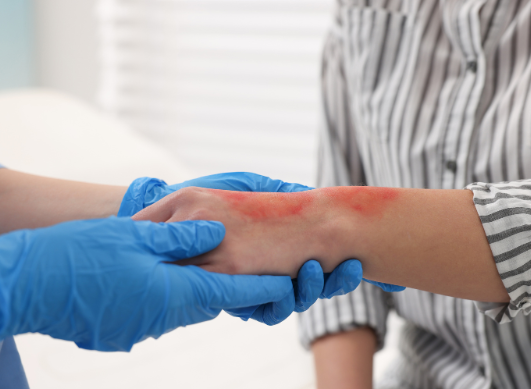- Home
- Forums
- General forums
- News from the media
- Should You Be Worried About Bruising Easily?
Should You Be Worried About Bruising Easily?
- 180 views
- 1 support
- 4 comments
All comments
![]()
Sylviaduffy
![]()
Sylviaduffy
Last activity on 27/10/2025 at 09:26
Joined in 2016
I am always covered in bruises but I just think it's because I'm on aspirin
See the signature
Sylvia Duffy

Unregistered member
I bruise really easily, someone can shake my hand firmly & I bruise, or help me out of the car & I bruise. I can wake up in the morning with a bruised arm or leg. I have been on cortisone for many years & now also anticoagulants, so I believe that is the main cause. However I have never seen it on anyone else, rather strange. My skin is like tissue paper which doesn't help.

Unregistered member
Well thanks Sylvia. Now I know it is not just me. I am also on aspirin so combined with cortisone I suppose I must just get on with it.

Unregistered member
hi im taking glucophage .metformin hydrochloride release tablets and im getting very itchy i feel like things are crawling over me what should i do they are 500mg and im bruising as well thanks .dave
Give your opinion
Articles to discover...
Subscribe
You wish to be notified of new comments
Your subscription has been taken into account








Gilda
Community managerGood advisor
Gilda
Community manager
Last activity on 03/02/2023 at 15:26
Joined in 2015
710 comments posted | 68 in the News from the media group
Rewards
Good Advisor
Contributor
Messenger
Committed
Explorer
Evaluator
Health Care